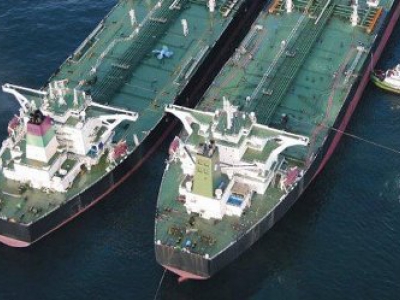STS operation needs to be carefully planned right from its initial stage
The Shipowners P&I Club has recently experienced a number of claims arising from poor cargo practices being adopted on board tankers during Ship To Ship (STS) operations.
On the back of these incidents, the Club would like to bring operators’ attention to Chapter 8 of MARPOL Annex I. Whilst the regulations stated apply to oil tankers of 150GT and above, engaged in the transfer of oil cargo between oil tankers at sea (STS operations), the Club also encourages operators operating vessels outside thesecriteria but who engage in STS operations to incorporate these operating procedures to assist with ensuring safe operations.
|
An STS operation needs to be carefully planned right from its initial stages with the following being of paramount importance:
|
Any oil tanker involved in STS operations shall carry on board an STS operation plan, approved by the Administration and in the working language of the ship, prescribing how to conduct STS operations. The STS operation plan should be developed taking into account the information contained in IMO’s “Manual on Oil Pollution, Section I, Prevention” and the ICS and OCIMF “Ship To ShipTransfer Guide, Petroleum”.
The person in overall advisory control of STS operations shall be qualified to perform all relevant duties, taking into account the qualifications contained in the two above mentioned publications.
An STS operations plan should include a step by step description of the entire STS operation including description of the manoeuvring methods, mooring and unmooring procedures, description of the cargo and ballast transfer procedures and duties of persons involved. In addition contingency plans and emergency procedures should be included and these should cover all possible emergencies and take into account the location of the operation and the resources available.
|
STS checklists as established in the STS Operations Plan should deal with the following stages of operation:
|
Amongst the claims received by the Club, the majority have involved collisions or contacts between the two vessels involved in the STS operation whilst manoeuvring to come alongside or during sailing.
|
The Club would like to remind operators on the importance of establishing and training the ship’s crew on procedures to be adopted when engaged in such operations. These may include:
|
Further emphasis should be laid on establishing proper communication channels at all levels of operation and ensuring that all equipments that are to be involved in the operation are available, ready and compatible. The compatibility of the cargo handling equipments on the two vessels should be given due importance with special consideration to the pumping capacities of the two vessels involved. It has to be ensured that the minimum pumping rate of the discharging vessel is well within the maximum loading rate of the receiving vessel.
The Shipowners Club recommends operators concerned with STS operations to review their procedures for their fleet and ensure suitable training is given to the crew involved.
To assist, reference can be made to the following publications:
- Manual on Oil Pollution, Section I (IMO).
- MARPOL.
- Ship To ShipTransfer Guide – Petroleum (ICS and OCIMF).
- International Safety Guide for Oil Tankers and Terminals (ISGOTT).
- Convention on International Regulations for Preventing Collisions at Sea (COLREG), 1972 – (IMO).
Source: The Shipowners P&I Club
































































